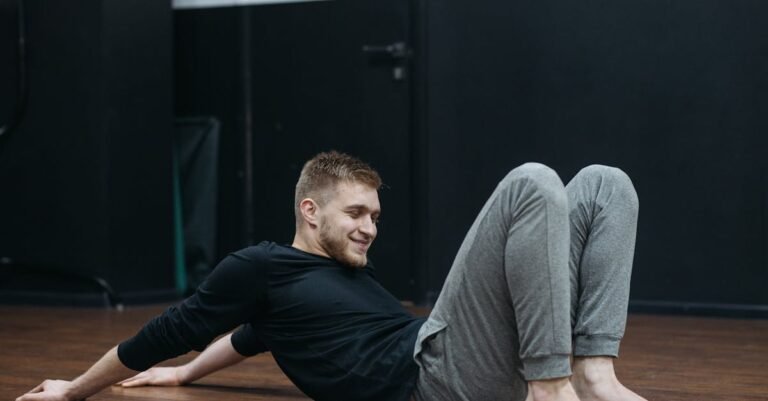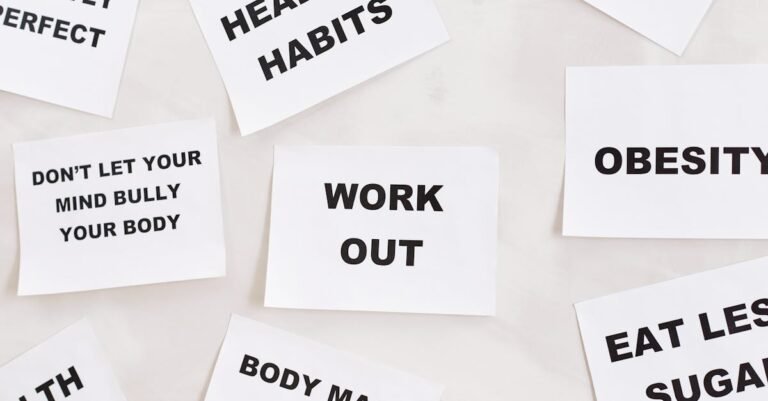Table of Contents
- Best Time To Exercise: Morning vs Evening – Cracking the Code
- Why Does Exercise Timing Even Matter?
- The Case for Morning Workouts: Rise and Shine!
- The Argument for Evening Exercise: Sweat After Sunset
- What Does the Science Actually Say?
- Finding Your Best Time: The Personal Equation
- The Most Important Thing: Consistency Over Timing
- Conclusion: The Verdict (Spoiler: It’s Personal!)
- Frequently Asked Questions (FAQs)
Best Time To Exercise: Morning vs Evening – Cracking the Code
Ah, the age old question! You’re motivated, you’ve got your gear ready, but one crucial detail hangs in the air: when should you actually hit the gym, pavement, or yoga mat? Is it better to leap out of bed and get your sweat on before the world wakes up, or is it more effective to burn off the day’s stress in the evening? It feels like everyone has an opinion, right? Your super fit colleague swears by 5 AM runs, while your gym buddy insists that evening sessions are the only way to lift heavy.
So, what’s the real deal? Is there a magic window for maximizing fat loss, muscle gain, or just feeling fantastic? We’re going to dive deep into the morning versus evening workout debate. Forget the guru hype and conflicting advice for a moment. Let’s explore the science, the practicalities, and most importantly, how you can figure out the optimal time to move your body. Because spoiler alert: the “best” time might be more personal than you think.
Why Does Exercise Timing Even Matter?
Before we pit dawn against dusk, let’s understand why this is even a conversation. It’s not just about fitting it into your schedule (though that’s a huge part of it, we’ll get there!). Your body isn’t the same machine at 6 AM as it is at 6 PM. Internal processes fluctuate throughout the day, potentially impacting how you feel, perform, and recover from exercise.
Understanding Your Body Clock (Circadian Rhythm)
Ever heard of your circadian rhythm? Think of it as your body’s internal master clock, operating on a roughly 24 hour cycle. It’s tucked away in your brain (specifically, the suprachiasmatic nucleus, if you want to get fancy) and responds primarily to light and darkness. This internal clock dictates loads of things: when you feel sleepy, when you feel alert, your hormone release patterns, your core body temperature, and even your metabolism.
Imagine your body running on a daily schedule set by this clock. Cortisol (often called the stress hormone, but also crucial for alertness) typically peaks in the morning to help you wake up and gradually declines throughout the day. Melatonin, the sleep hormone, does the opposite, rising in the evening to prepare you for slumber. Messing with this rhythm too much (hello, jet lag or shift work!) can throw your whole system out of whack. Exercise, being a significant physiological event, naturally interacts with this intricate daily cycle.
Hormones, Temperature, and Performance
So, how does this internal clock influence your workout potential? Several key factors fluctuate:
- Core Body Temperature: Your body temperature isn’t constant. It’s usually lowest a couple of hours before you naturally wake up and gradually rises throughout the day, peaking in the late afternoon or early evening. Why does this matter? A warmer body generally means more flexible muscles, potentially better nerve transmission speed, and improved metabolic reactions. Think of it like warming up a car engine on a cold day – it runs smoother once it’s warm. This suggests that, purely from a physiological standpoint, your body might be more primed for peak physical performance later in the day.
- Hormone Levels: As mentioned, hormones ebb and flow. Testosterone, important for muscle building and strength, often shows peaks in the morning but can also respond robustly to exercise later in the day. Cortisol’s morning surge helps mobilize energy, which could be beneficial for getting started, but chronically high cortisol isn’t ideal. How exercise timing interacts with these hormonal tides is complex and can influence energy levels, strength, and recovery.
- Energy Metabolism: How your body uses fuel (carbs and fats) can also vary slightly. Some research hints that you might burn slightly more fat during morning exercise done in a fasted state, while carb metabolism might be more efficient later when body temperature is higher. However, the overall impact on long term weight loss is still debated.
Understanding these natural fluctuations helps explain why you might feel different or perform differently depending on when you choose to exercise.
The Case for Morning Workouts: Rise and Shine!
There’s a certain appeal to getting your workout done and dusted before the chaos of the day truly begins. For many, it feels like a proactive strike, setting a positive tone for everything that follows. Let’s look at the perks and potential pitfalls of being an early bird exerciser.
Benefits of Sweating with the Sunrise
Why do so many people swear by morning workouts? It turns out there are some compelling reasons.
Consistency and Habit Formation
Perhaps the biggest advantage of morning exercise is psychological. Life happens. Meetings run late, friends make spontaneous plans, traffic jams occur, and sheer exhaustion sets in after a long day. When you schedule your workout for the evening, it often becomes the easiest thing to skip when life throws curveballs. By getting it done first thing, you minimize the chances of unforeseen obstacles derailing your fitness goals. It becomes a non negotiable appointment with yourself before other demands start competing for your time and energy. This makes it much easier to build a consistent habit, and consistency is the bedrock of any successful fitness journey.
Metabolism Boost Throughout the Day?
You often hear that morning workouts “kickstart your metabolism” for the entire day. There’s some truth to this, related to Excess Post exercise Oxygen Consumption (EPOC), often called the “afterburn effect.” Your body continues to burn calories at a slightly elevated rate even after you stop exercising as it works to recover and return to its resting state. Doing this in the morning means you theoretically benefit from this slightly elevated metabolism for a longer portion of your waking hours compared to an evening workout where much of the afterburn occurs while you sleep. While the total calorie difference might not be enormous for moderate workouts, some people find it psychologically motivating.
Improved Mental Clarity and Mood
Ever notice that post workout buzz? Exercise releases endorphins, natural mood boosters often described as producing a “runner’s high.” Starting your day with this natural mood lift can set a positive tone, reduce stress, and improve focus and mental clarity for the hours ahead. It can feel like clearing the mental cobwebs before diving into work or other responsibilities. For many, this mental benefit is just as valuable, if not more so, than the physical ones.
Better Sleep Quality (Potentially)
Some studies suggest that morning exercise might lead to better sleep quality compared to late evening workouts. Exercising raises your core body temperature and heart rate. Doing this early in the day allows your body ample time to cool down and return to baseline before bedtime, potentially aligning better with your natural circadian rhythm for sleep. Vigorous exercise too close to bedtime, conversely, might interfere with sleep for some individuals (though not all!).
Potential Downsides of Early Bird Exercise
Of course, it’s not all sunshine and burpees. Morning workouts have their challenges.
Feeling Stiff and Less Powerful?
Remember that lower core body temperature in the morning? This can translate to feeling stiffer and less flexible when you first wake up. Your muscles and joints might need a more thorough warm up to perform optimally and reduce injury risk. Some research also suggests that peak muscle strength and power output might be slightly lower in the morning compared to the afternoon or evening. So, if you’re chasing personal bests in strength or power based activities, morning might not be your absolute peak performance window.
The Dreaded Early Alarm Clock
Let’s be honest: waking up significantly earlier requires discipline, especially if you’re not naturally a morning person. It might mean sacrificing sleep, particularly if you struggle to adjust your bedtime accordingly. Consistently shortchanging yourself on sleep can negate many of the benefits of exercise and negatively impact your overall health, mood, and performance. If forcing yourself out of bed feels like torture every single day, it might not be a sustainable strategy for you.
The Argument for Evening Exercise: Sweat After Sunset
For those who cringe at the thought of a pre dawn alarm, evening workouts offer a welcome alternative. Winding down the day with physical activity has its own set of advantages, appealing to the night owls and those with demanding morning schedules.
Advantages of Working Out Later in the Day
Why might sweating it out after work or school be the better choice for you?
Peak Physical Performance?
As mentioned earlier, your core body temperature and, for many people, muscle strength and power tend to peak in the late afternoon or early evening. Your muscles are naturally warmer and more pliable, reaction time might be quicker, and you might find you can lift heavier, run faster, or push harder compared to a morning session. If your primary goal is hitting performance milestones or maximizing strength gains, studies often point towards the afternoon/early evening as the physiologically optimal time.
Stress Relief After a Long Day
Had a tough day at work? Dealing with deadlines, demanding colleagues, or just the general pressures of life? An evening workout can be an incredible stress buster. It provides a physical outlet to release pent up tension and frustration. Shifting your focus from mental worries to physical exertion can be incredibly cathartic, helping you mentally decompress and transition from work mode to personal time. It’s like hitting a reset button before you settle in for the night.
More Time for Longer Sessions
Mornings can often feel rushed. You might only have a tight 45 minute window before needing to shower, eat, and commute. Evenings, for some, offer more flexibility. You might not be racing against the clock in the same way, allowing for longer warm ups, more comprehensive workouts, or dedicated time for stretching and cool downs without feeling pressured. If your workout routine requires a bit more time (like endurance training or complex strength routines), the evening might be more accommodating.
Social Opportunities
Evening is often prime time for group fitness classes, team sports practices, or meeting up with a gym buddy. If the social aspect of exercise is important for your motivation and enjoyment, evening workouts often provide more opportunities to connect with others who share your fitness interests.
Possible Drawbacks of Night Owl Fitness
Sweating after sunset isn’t without potential downsides either.
Interfering with Sleep?
This is the most commonly cited concern. Intense exercise raises your heart rate, adrenaline levels, and core body temperature – all things that are counterproductive to falling asleep. While some people can exercise late and sleep like a log, others find that vigorous activity too close to bedtime (within 1 3 hours) leaves them feeling wired and unable to wind down. This effect varies greatly between individuals and also depends on the intensity and type of exercise. A gentle yoga session might be fine, while a high intensity interval training (HIIT) session could be problematic for some.
Finding Motivation After Work/School
After a long, tiring day, the couch and your favorite streaming service can look incredibly appealing. Mustering the energy and motivation to change into workout clothes and head out the door (or even to your living room floor) can be a significant challenge. Decision fatigue sets in, and the temptation to just “do it tomorrow” can be strong. This is where the consistency advantage of morning workouts really shines for some people.
What Does the Science Actually Say?
Okay, we’ve heard the arguments for both sides. But what does the scientific research *really* indicate when it comes to specific goals like weight loss, muscle gain, and performance?
Weight Loss: Does Timing Make a Difference?
This is a hot topic. Some studies suggest that exercising in the morning, especially in a fasted state (before breakfast), might lead to slightly higher fat oxidation (fat burning) during the workout itself. The theory is that with depleted glycogen (stored carbohydrate) stores overnight, your body turns to fat for fuel more readily. However, other studies show no significant difference in overall fat loss over weeks or months between morning and evening exercisers, provided the total calorie expenditure and diet are the same. The consensus? While fasted morning cardio might burn a slightly higher percentage of fat *during* the session, the most critical factor for weight loss is overall calorie balance (calories consumed vs. calories burned) sustained over time. Consistency matters far more than timing here.
Muscle Gain: Morning Power vs. Evening Pump?
Here, the evidence leans slightly towards the evening. As discussed, peak muscle strength and power output often occur later in the day when core body temperature is higher. This could potentially allow you to lift heavier weights or complete more repetitions during evening workouts, providing a greater stimulus for muscle growth (hypertrophy) over time. Some research also points to hormonal responses (like testosterone and cortisol ratios) being potentially more anabolic (muscle building) following evening resistance training compared to morning. However, the differences are often small, and consistent training with progressive overload is still the king of muscle gain, regardless of the time of day.
Performance Goals: When Are You Strongest?
For activities requiring maximal strength, power, speed, or endurance, the late afternoon/early evening often seems to hold a slight edge based on physiological factors like body temperature and neuromuscular function. Many athletic records are broken during this time window. If you’re a competitive athlete or seriously focused on hitting peak performance numbers, training later in the day might offer a small advantage. However, it’s also crucial to train at the time you expect to compete, if applicable, to accustom your body to performing under those specific conditions.
Finding Your Best Time: The Personal Equation
So, after all that, what’s the final answer? Drumroll, please… The best time to exercise is the time that works best *for you*. Annoying, right? But it’s the truth. The theoretical “optimal” time based on physiology means nothing if you can’t stick to it.
Listen to Your Body: Are You a Lark or an Owl?
Are you someone who naturally bounds out of bed full of energy, or do you hit the snooze button ten times and need three cups of coffee before forming coherent sentences? Your natural chronotype (whether you’re a morning person, evening person, or somewhere in between) plays a massive role. Forcing yourself to do intense 6 AM workouts if you’re a dedicated night owl might lead to burnout and resentment. Conversely, trying to drag yourself to the gym at 7 PM when you’re naturally winding down might feel equally miserable. Pay attention to when you generally feel most energetic and mentally sharp.
Consider Your Lifestyle and Schedule
What does your daily life look like? Do you have kids to get ready for school in the morning? A demanding job with unpredictable hours? A long commute? Social commitments in the evening? Your workout schedule needs to realistically fit into the framework of your life. Maybe lunchtime workouts are the only feasible option. Perhaps weekends are your prime time for longer sessions. Be practical. Choose a time slot where you are least likely to face conflicts or feel overly rushed.
Experiment and See What Sticks
The best way to find your ideal workout time is to try different slots. Give morning workouts an honest try for a couple of weeks. Then, switch to evenings for a similar period. How do you feel? Which time slot feels more sustainable? When do you feel stronger or have more energy? When are you most likely to actually *do* the workout? Track your energy levels, mood, performance (if relevant), and adherence. The time that allows you to be most consistent is likely your personal “best” time.
The Most Important Thing: Consistency Over Timing
Let’s hammer this home: while there might be minor physiological advantages to exercising at certain times for specific goals, these benefits are dwarfed by the importance of consistency. Exercising sporadically at the “perfect” time is far less effective than exercising regularly at a “good enough” time that fits your life. Showing up day after day, week after week, is what truly drives results, whether your goal is weight loss, muscle gain, improved health, or stress reduction. Don’t let the pursuit of the perfect time become an obstacle to just getting it done. Find a time you can commit to, and make movement a regular part of your routine. That’s the real secret sauce.
Conclusion: The Verdict (Spoiler: It’s Personal!)
So, morning vs. evening exercise? The ultimate winner isn’t declared by science, but by you. Morning workouts might boost consistency, mood, and potentially aid sleep. Evening workouts might leverage peak physical performance and offer great stress relief. Both have potential downsides – early alarms and morning stiffness versus potential sleep disruption and motivation dips. The subtle physiological differences are interesting but, for most people, not game changing. The most effective workout schedule is the one you can consistently adhere to and enjoy. Listen to your body, consider your lifestyle, experiment a little, and choose the time that makes exercise a sustainable habit, not a dreaded chore. Get moving, whenever that may be!
Frequently Asked Questions (FAQs)
1. Is it bad to exercise on an empty stomach in the morning?
Not necessarily bad, but it depends on the individual and the type of workout. For light to moderate cardio, exercising fasted might enhance fat burning slightly and is fine for many. However, for high intensity or long duration workouts, or for strength training, having some fuel beforehand (like a small carb rich snack) can improve performance and prevent energy crashes or dizziness. Listen to your body – if you feel weak or lightheaded exercising fasted, eat something small 30-60 minutes before.
2. If I work out in the evening, how late is too late?
There’s no universal cut off time, as sensitivity varies greatly. A general guideline is to avoid very intense workouts within 1 3 hours of your planned bedtime. If you find evening exercise leaves you feeling energized and unable to sleep, try finishing your workout earlier, reducing the intensity, or incorporating relaxing activities like stretching or foam rolling afterwards to help you wind down. Gentle activities like yoga or walking are usually fine closer to bedtime.
3. Does the “best” time change depending on the type of exercise (cardio vs. strength)?
Potentially, yes. As mentioned, strength and power might peak later in the day due to higher body temperature, potentially favouring evening strength training for performance goals. For endurance cardio, timing might be less critical, although some prefer mornings for consistency or evenings for stress relief. Again, personal preference and schedule adherence are paramount. The best time for your chosen activity is when you can do it consistently and feel good doing it.
4. Can I split my workouts, doing some in the morning and some in the evening?
Absolutely! This can be a great strategy, especially if you have multiple goals or limited time slots. For example, you might do cardio in the morning and strength training in the evening, or break up a longer workout into two shorter sessions. This can help manage energy levels and fit exercise into a busy schedule. Just ensure you allow adequate recovery between intense sessions targeting the same muscle groups.
5. I work shifts that change regularly. How can I establish an exercise routine?
This is challenging but doable! Flexibility is key. Instead of fixing a specific time, focus on fitting exercise in whenever possible around your changing shifts. Look for windows before or after work, even if they vary day to day. Perhaps shorter, more frequent workouts are more manageable than longer, less frequent ones. Prioritize sleep as much as possible, as shift work disrupts circadian rhythms. Be kind to yourself, focus on consistency over perfection, and celebrate every workout you manage to squeeze in.










